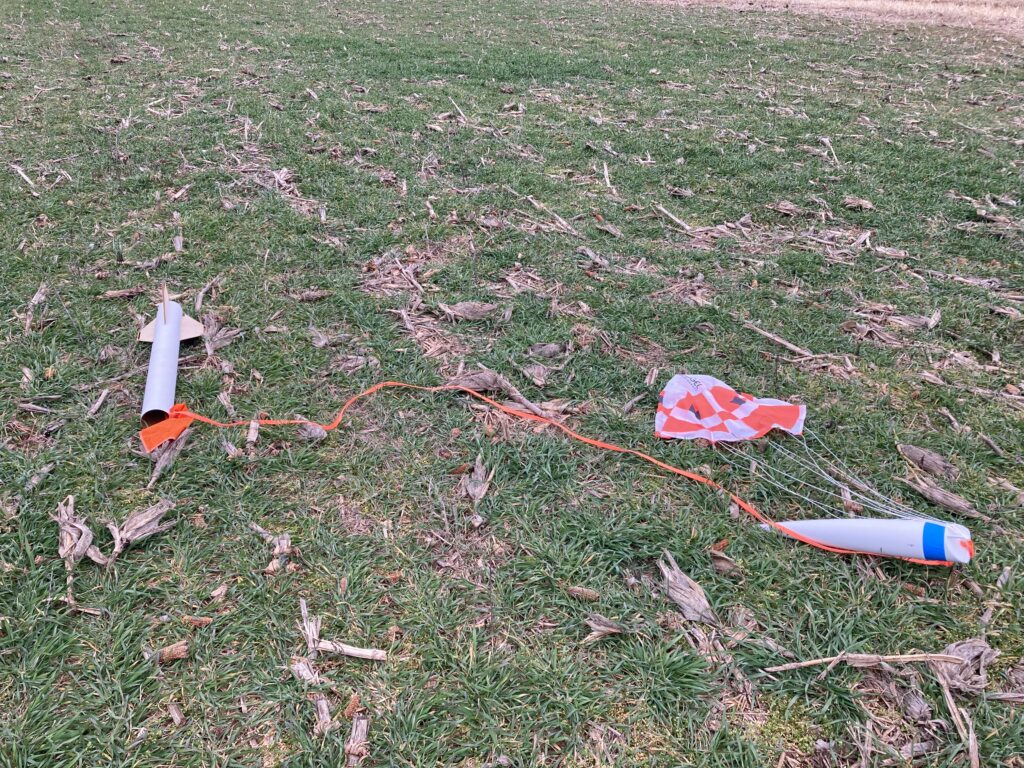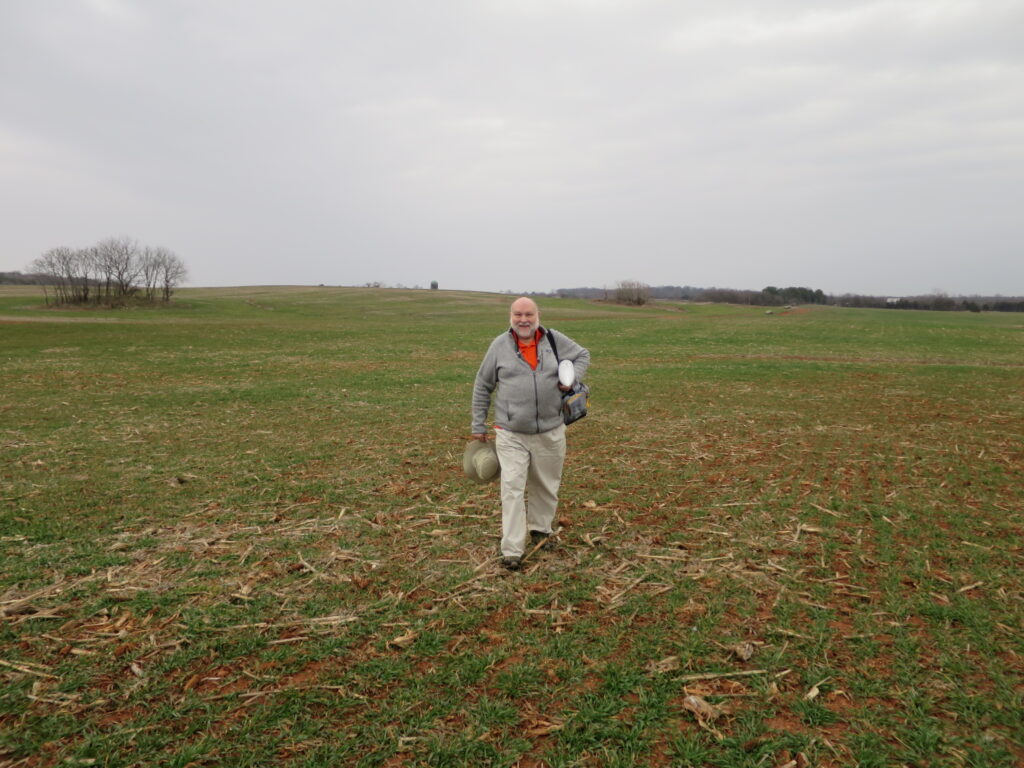| Name | 255 |
| Diameter | 10.2 cm (4 in) |
| Length | 143 cm |
| Rail buttons | Two 1010 |
| Motor mount | 38 mm |
| Weight (no motor) | 1725 g |
| CP | 108 cm |
| CG (no motor) | 89.5 cm |
| Caliber (w/H272T) | 1.2 |
Tripoli Level 1 Certification is the starting point for most people interested in high-power rocketry. That’s the path I chose. I joined Tripoli Central Virginia, the Tripoli Prefecture for this area.
For my Level 1 rocket I chose the Apogee Zephyr kit. It appealed to me because of the 4-inch diameter, which allowed me to reach inside it during construction; the excellent build instructions and videos; and the potential for expanding it into a more capable rocket in the future. It turns out I’m not alone: many people choose the Zephyr for their Level 1 flight.
Model rockets are typically assembled using white glue or wood glue; high-power rockets require stronger stuff, namely epoxy. I chose a slow-curing – and so higher strength – two-part epoxy with fillers that can be added to achieve the desired thickness.
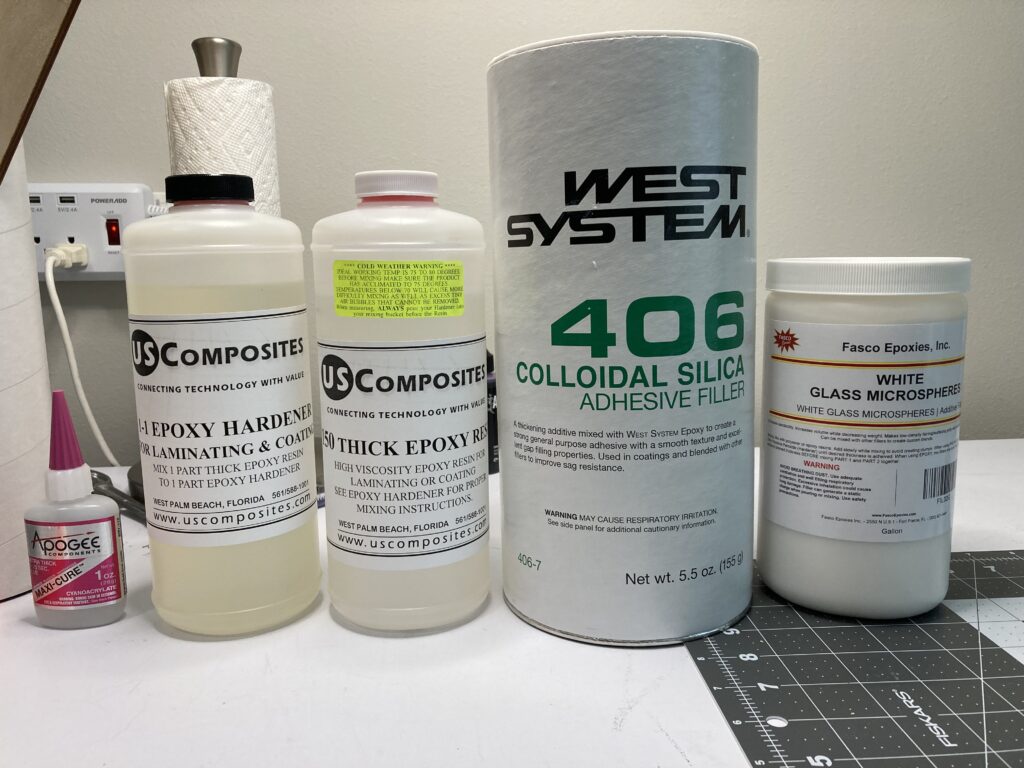
This kit is really well thought out, great for a beginner high-power builder. Fin alignment was a no-brainer, and there are lots of places to slather epoxy.
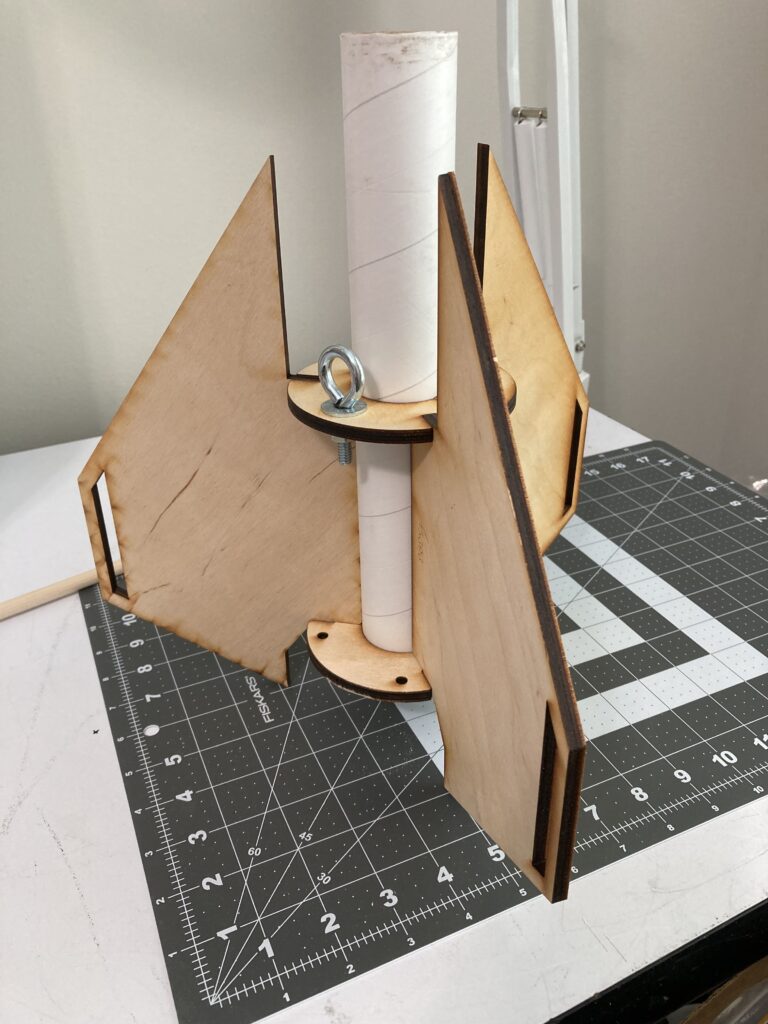
In hindsight, knowing I was going to use this as the basis for my Level 2 rocket, I should have replaced the eye bolt from the kit with a forged eye bolt. I also discovered too late that once the two body tubes and coupler had been glued together I couldn’t fit my arm down to reach the eye bolt and untie the recovery harness. Should have used screws to hold the two body tubes and the coupler together so I could take it apart later. Ah, well, first time.

So, yeah, I went nuts with the epoxy! I wasn’t very concerned with the weight and wanted to be sure it held.
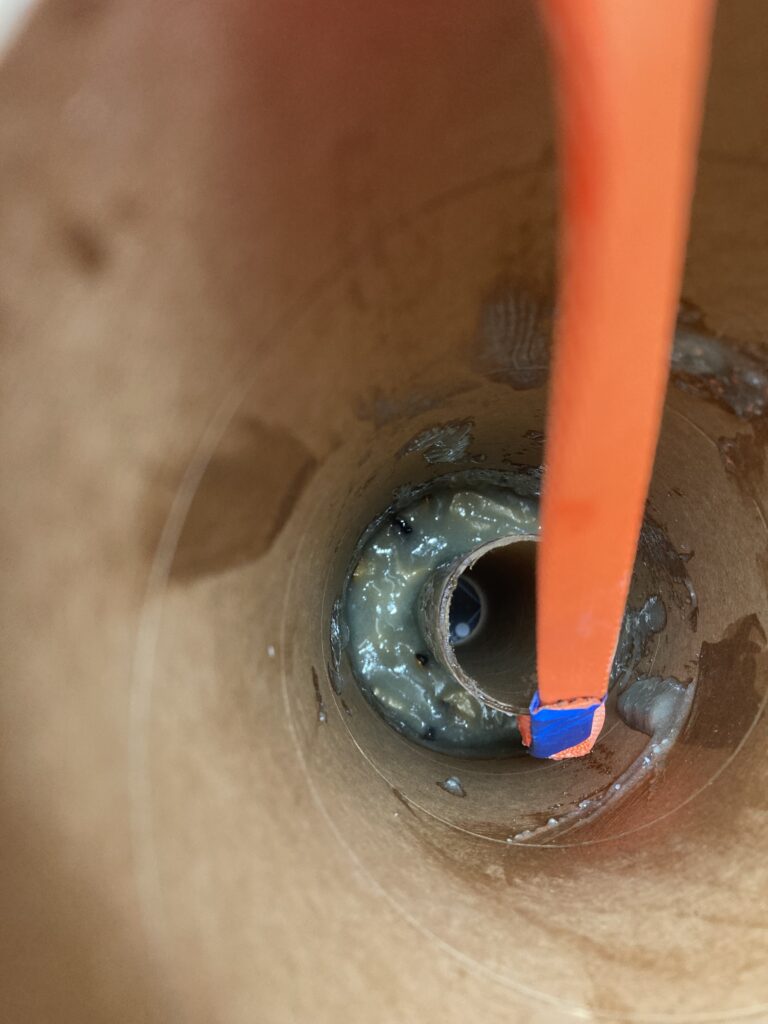
More epoxy overkill inside the fin/motor mount assembly.
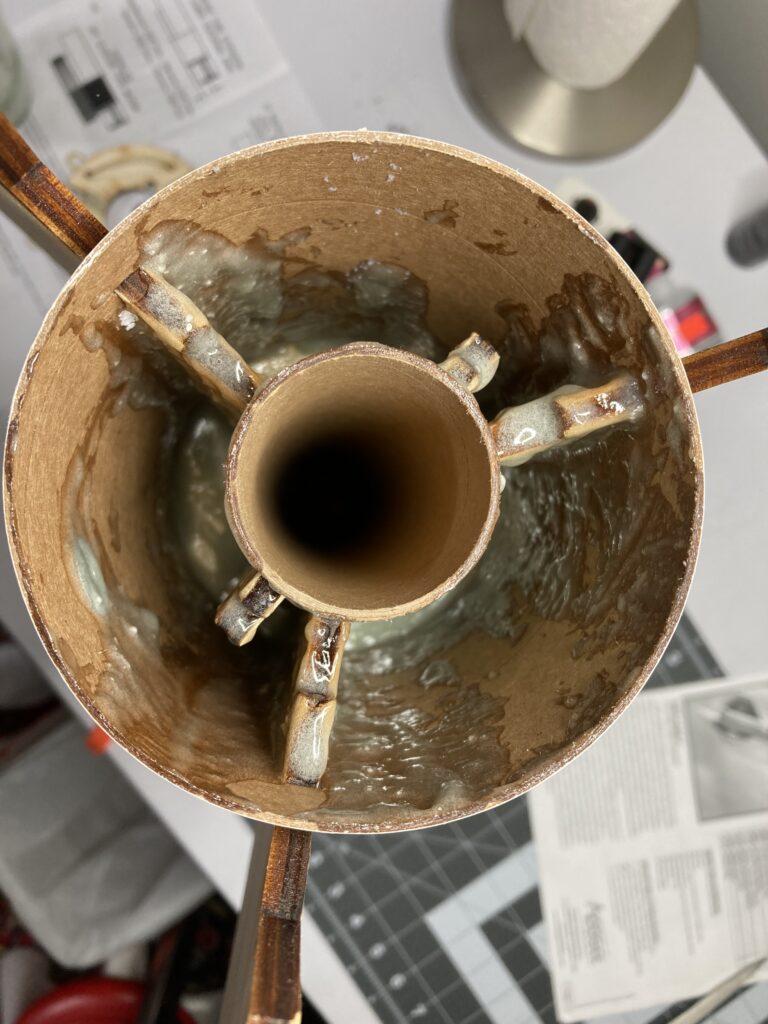
I was really happy with the way it turned out. I also decided to defer painting until the Level 2 incarnation.
Launch day, 10 February 2024, was overcast but the ceiling was plenty high enough. I flew on an AeroTech H272T 38mm reload because that was what I could get my hands on. (Thanks to Sean, my Prefect, for selling me one of his stash.)
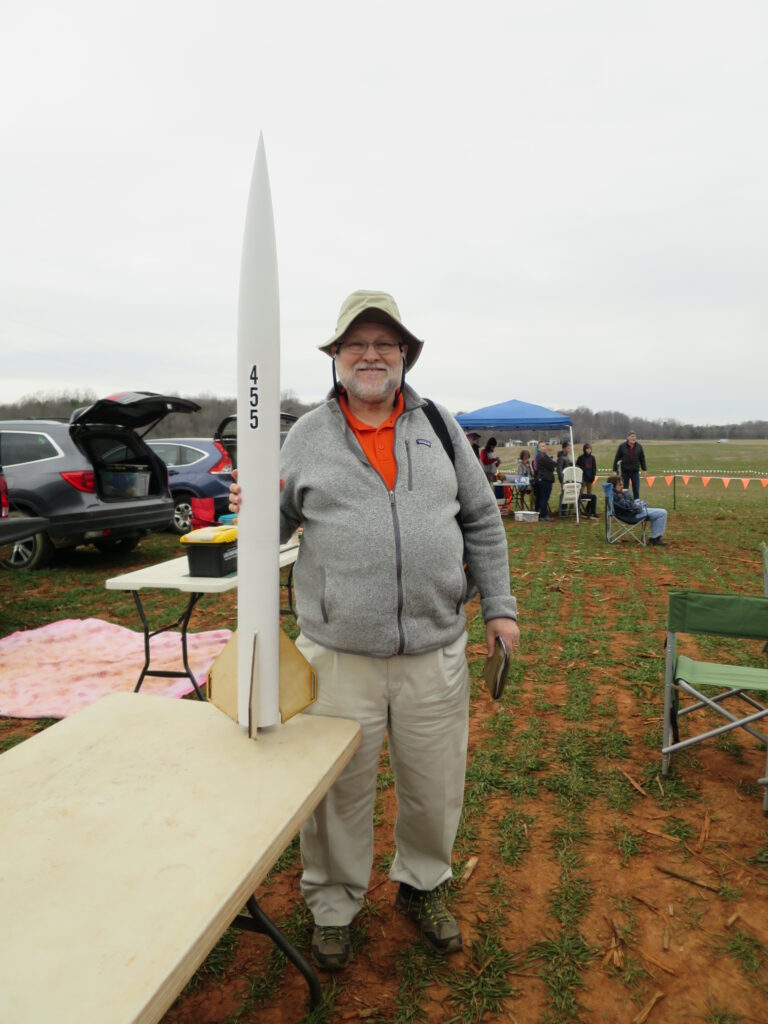
The launch and boost were beautiful, the parachute deployed very shortly after apogee, and nothing tangled. No damage at all on landing, but it made me walk a little farther than I wanted to. Still, hard to quibble with a successful Level 1 certification flight on the first try. (The name “455” was from the Kathy Mattea song 455 Rocket.)
